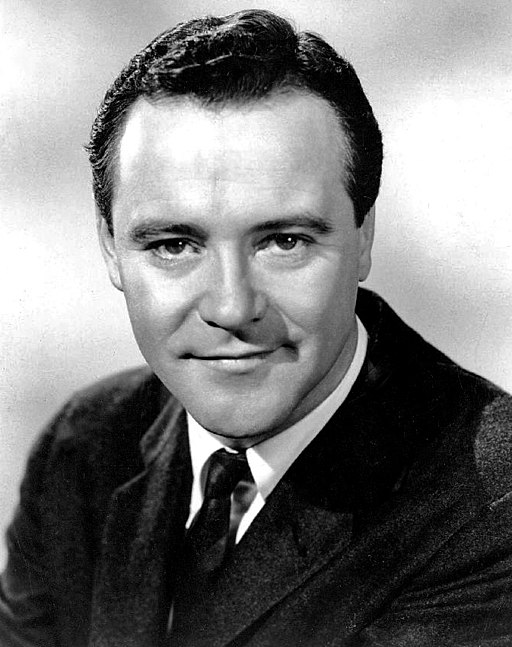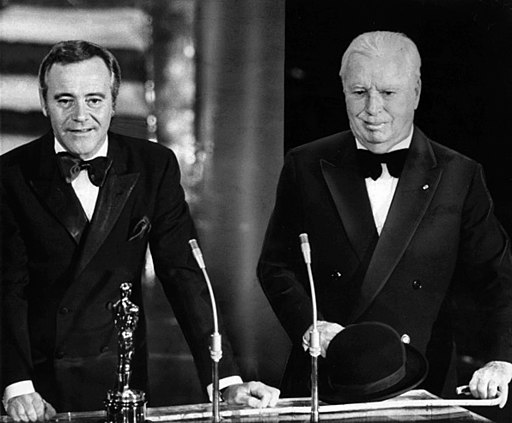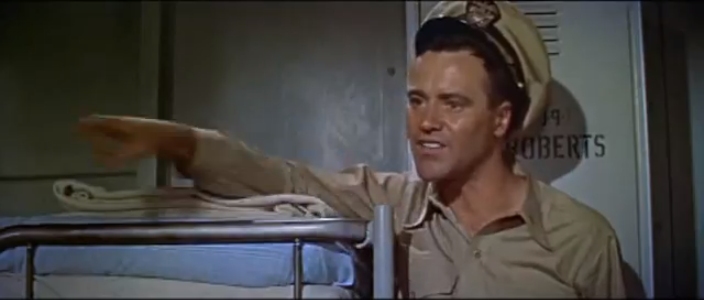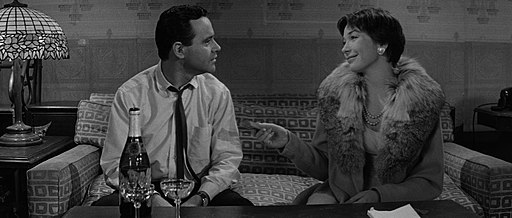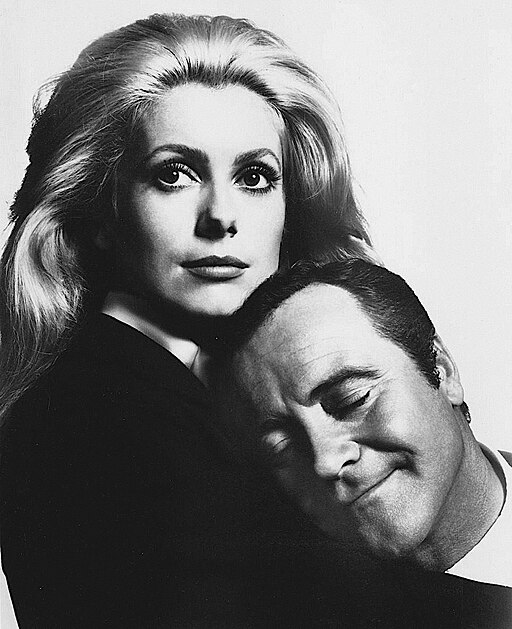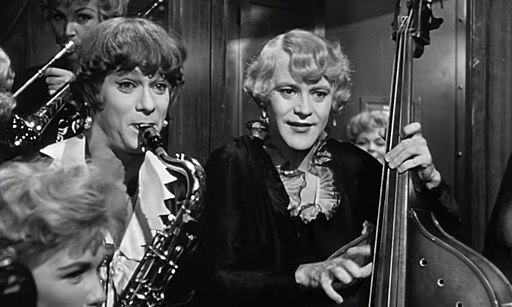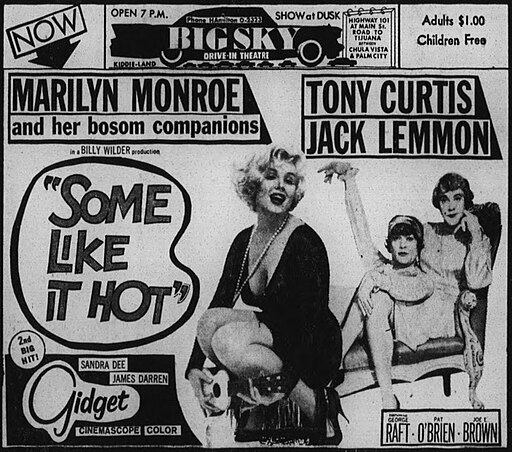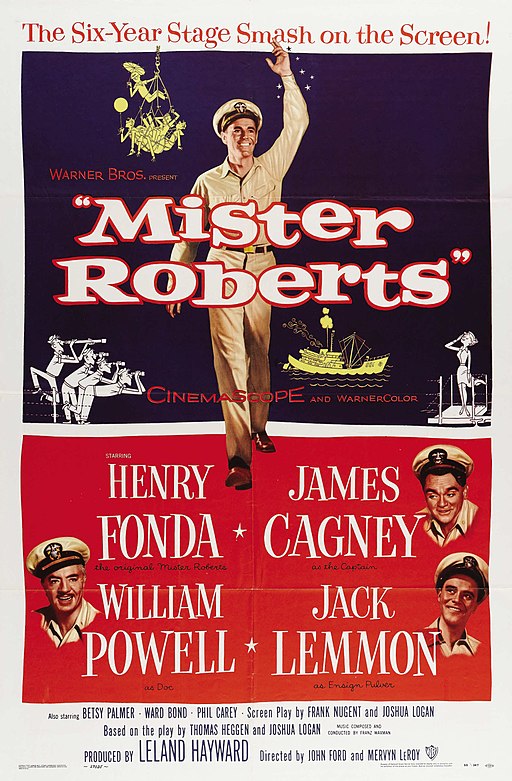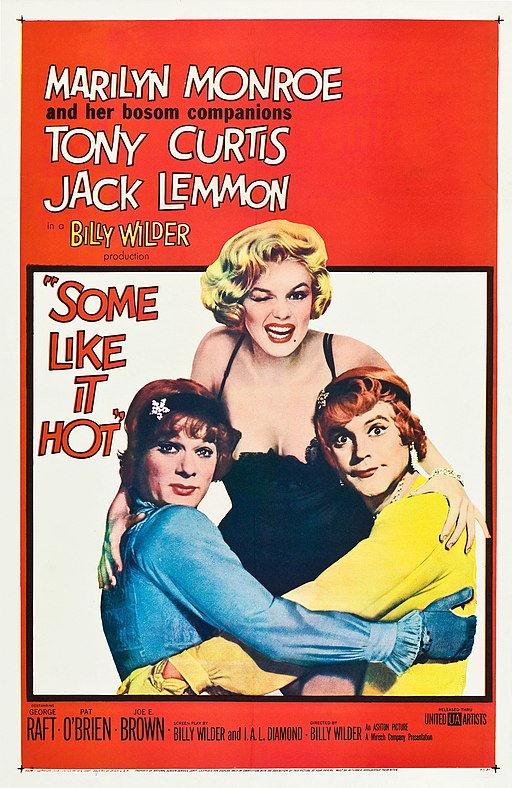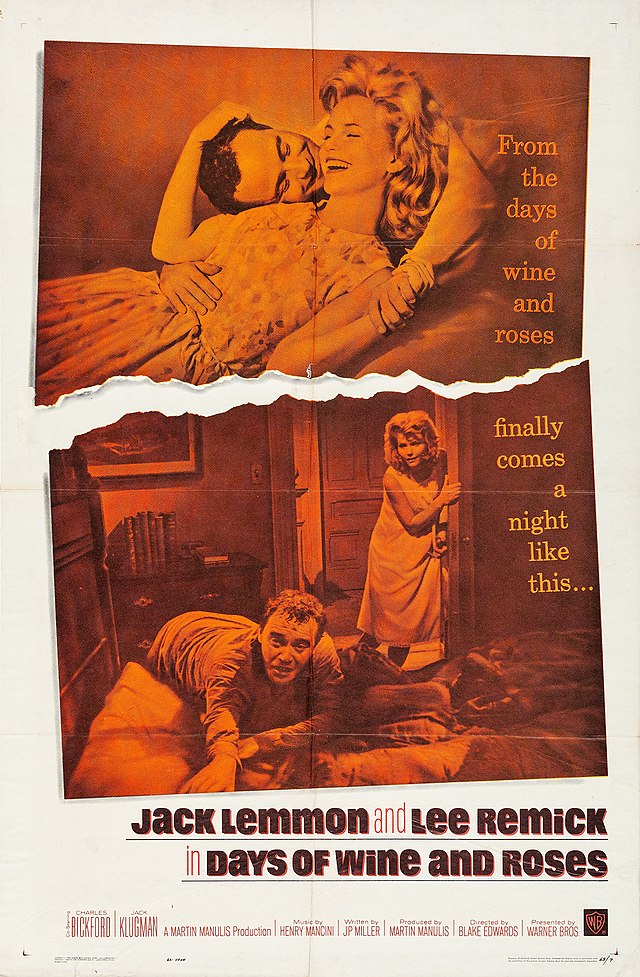Jack Lemmon
back| Full Name | John Uhler Lemmon III |
| Stage Name | Jack Lemmon |
| Born | February 8, 1925 |
| Birthplace | Newton, Massachusetts, USA |
| Died | June 27, 2001 |
| Buried | Westwood Village Memorial Park Cemetery, Los Angeles, California, USA |
| Married to | Cynthia Stone (1950–1956), Felicia Farr (1962 until his death in 2001) |
| Children | Chris Lemmon (with Cynthia Stone), Courtney Lemmon (with Felicia Farr) |
| Notable films | Mister Roberts (1955) - Some Like it Hot (1959) - The Apartment (1960) - The Odd Couple (1968) - Save the Tiger ((1973) - The China SYndrome (1979) - Glengarry Glen Ross (1992) - Grumpy Old Men (1993) |
Jack Lemmon
The Everyman with a Complex Emotion
Jack Lemmon's career spanned over five decades, and he was celebrated for his ability to play both comedic and dramatic roles with equal skill. He was noted for his collaborations with director Billy Wilder and actor Walter Matthau.
Lemmon won two Academy Awards in his career: Best Supporting Actor for "Mister Roberts" (1955) and Best Actor for "Save the Tiger" (1973). He was also famous for his roles in Billy Wilder's classic comedies, including "Some Like It Hot" and "The Apartment," both of which are considered among the greatest films ever made. Lemmon's charm, everyman persona, and depth of character made him a beloved figure in American cinema.
Related
Jack Lemmon
Biography, Analysis of his Movie Career and all his Movies
Early Years and Personal Life
- Birth and Family: Jack Lemmon was born on February 8, 1925, in Newton, Massachusetts, USA. He was the only child of Mildred Burgess LaRue and John Uhler Lemmon, Jr.
- Education: He attended Phillips Andover Academy and later Harvard University, where he was an active member of the Hasty Pudding Club, a theatrical student society.
- Military Service: Lemmon served in the United States Navy during World War II.
Path Towards Success
- Early Career: After the war, Lemmon moved to New York City to pursue acting. He worked in radio, television, and on Broadway. His performance in the Broadway production "Room Service" gained significant attention.
- Film Debut: Lemmon's film debut came in 1954 with "It Should Happen to You." His performance caught the eye of critics and audiences alike.
- Rise to Fame: His role in 1955’s "Mister Roberts," alongside Henry Fonda and James Cagney, won him his first Academy Award for Best Supporting Actor.
Marriages and Family Life
- First Marriage: Lemmon was first married to actress Cynthia Stone from 1950 to 1956. They had a son, Chris Lemmon, who also became an actor.
- Second Marriage: In 1962, Lemmon married actress Felicia Farr. They had a daughter, Courtney, and remained married until Lemmon’s death in 2001.
Career Highlights
- Versatile Actor: Lemmon was known for his versatility, excelling in both comedic and dramatic roles.
- Collaboration with Billy Wilder: He frequently collaborated with director Billy Wilder, starring in several acclaimed films like "Some Like It Hot" and "The Apartment."
- Partnership with Walter Matthau: Lemmon formed a legendary partnership with Walter Matthau, with memorable movies like "The Odd Couple" and "Grumpy Old Men."
Passions and Interests
- Music: Lemmon was a talented pianist and often played the instrument in his films.
- Golf: He was an avid golfer and often participated in celebrity golf tournaments.
Death and Cause
- Date of Death: Jack Lemmon passed away on June 27, 2001.
- Cause of Death: He died of complications from bladder cancer.
- Legacy: Lemmon left behind a rich legacy as one of Hollywood's most respected and beloved actors. His unique blend of humor and humanity in his performances has continued to resonate with audiences and actors alike.
Jack Lemmon's journey from a young man passionate about acting to becoming an icon in the film industry is a testament to his talent, hard work, and the enduring appeal of his performances. His ability to seamlessly transition between genres and his dedication to his craft made him a role model for aspiring actors and a favorite among movie enthusiasts.
Analysis of Jack Lemmon’s Style of Acting:
Jack Lemmon's acting style was characterized by its remarkable versatility, depth of emotion, and an inherent authenticity that resonated with audiences. Several key aspects define his unique approach to acting:
Naturalism and Relatability
Everyman Appeal: Lemmon had a natural, everyman quality that made him relatable to audiences. He often played ordinary characters caught in extraordinary situations, bringing a sense of realism and believability to his roles.
Subtle Realism: Unlike some of his contemporaries who embraced a more theatrical style, Lemmon was known for his understated and naturalistic approach. He was adept at portraying complex emotions with minimalistic gestures and expressions.
Emotional Range and Versatility
Comedic Timing: Lemmon was highly regarded for his impeccable comedic timing. He had a unique ability to deliver lines with a natural wit and charm, making even the most ordinary dialogue humorous and engaging.
Dramatic Depth: Despite being renowned for comedy, Lemmon also excelled in dramatic roles. He had a profound ability to convey vulnerability and internal conflict, often bringing depth to troubled or anguished characters.
Physicality and Expression
Expressive Facial Features: His expressive face was a vital tool in his acting arsenal. He could communicate a wide range of emotions, from joy to despair, through his facial expressions alone.
Body Language: Lemmon used his body language effectively to add layers to his characters. Whether through a slumped posture, a nervous twitch, or a confident stride, his physicality was always in service of the character's emotional state.
Collaboration and Adaptability
Chemistry with Co-Stars: A hallmark of Lemmon's style was his remarkable chemistry with co-stars, most notably Walter Matthau. His ability to play off his partners added a dynamic and often improvisational feel to his performances.
Directorial Adaptability: Lemmon adapted his style to suit the vision of his directors, showing a chameleon-like ability to fit into the aesthetic and thematic tones of films directed by people like Billy Wilder, Blake Edwards, and Richard Quine.
Psychological Insight
Character Understanding: He had an insightful understanding of the psychological makeup of his characters, often bringing out nuances and subtleties in the script through his performance.
Empathetic Portrayals: Lemmon's portrayals were deeply empathetic. He had a gift for making characters sympathetic, even when they were flawed, ensuring that the audience always rooted for them.
Legacy
Influence on Actors: Lemmon's style influenced generations of actors who admired his ability to balance humor and pathos. His performances remain study material for actors seeking to learn the art of balancing dramatic and comedic elements in a single role.
Memorable Quotes from Jack Lemmon:
On Acting and Career:
"Failure seldom stops you. What stops you is the fear of failure."
"If you think it's hard to meet new people, try picking up the wrong golf ball.""It's hard enough to write a good drama, it's much harder to write a good comedy, and it’s hardest of all to write a drama with comedy. Which is what life is."
Personal Insights:
"Nobody deserves this much money - certainly not an actor."
"I won't quit until I get run over by a truck, a producer or a critic."
"Death ends a life, not a relationship."
On Success:
"Stay humble. Always answer your phone - no matter who else is in the car."
"The magic doesn't come from within the director's mind, it comes from within the hearts of the actors."
Reflective and Philosophical:
"I would rather play Hamlet with no rehearsal than TV golf."
"If you really do want to be an actor who can satisfy himself and his audience, you need to be vulnerable."
Humorous and Light-Hearted:
"Dying is easy, comedy is hard."
"I'm not a Hollywood actor. I'm a working, Broadway actor."
Trivia:
Jack Lemmon’s Tombstone:
Jack Lemmon's tombstone is unique and reflective of his personality and sense of humor. It is famously inscribed with the single word "Jack," followed by a drawing of a lemon, playing on his last name. This epitaph is a testament to Lemmon's self-deprecating humor and his ability to not take himself too seriously, traits that endeared him to both colleagues and audiences throughout his career.
The simplicity of the tombstone, with just his first name and the lemon drawing, speaks volumes about Lemmon's character. It suggests a man who was approachable and down-to-earth, despite his immense success and fame. This unpretentious epitaph aligns perfectly with the persona Lemmon often portrayed in his films—an everyman with whom the average person could identify.
Lemmon's final resting place is at Westwood Village Memorial Park Cemetery in Los Angeles, a resting place for many of Hollywood's greatest stars. His tombstone remains a point of interest for fans and visitors, a humble reminder of a man who brought laughter and depth to the silver screen.
Jack Lemmon’s Height:
Jack Lemmon was approximately 5 feet 9 inches (175 cm) tall. This height, considered average, contributed to his everyman appeal in many of his film roles, making him relatable to a wide audience. His physical stature complemented his acting style, which often involved portraying ordinary characters in extraordinary situations.
Special Relation with Walter Matthau
Jack Lemmon's relationship with Walter Matthau was one of the most iconic and endearing partnerships in Hollywood history. Their special bond, both on and off screen, was characterized by a remarkable chemistry and a deep mutual respect. Here are some key aspects of their relationship:
On-Screen Chemistry
Perfect Foils: Lemmon and Matthau were often cast as opposites in terms of character traits, with Lemmon typically playing the anxious, neurotic type, and Matthau the gruff, laid-back counterpart. This contrast created a dynamic and entertaining interplay that resonated strongly with audiences.
Memorable Collaborations: Their collaboration began with "The Fortune Cookie" (1966) and included classics like "The Odd Couple" (1968), "The Front Page" (1974), and the "Grumpy Old Men" series. Each film showcased their ability to bring out the best in each other's performances.
Off-Screen Friendship
Genuine Affection: Beyond their professional relationship, Lemmon and Matthau shared a genuine friendship. They enjoyed each other's company and had a mutual admiration that was evident in their interactions.
Similar Sense of Humor: Both actors had a similar sense of humor, which made their off-screen interactions as enjoyable as their on-screen performances. They were known to be quick with a joke and often made each other laugh.
Professional Respect
Respect for Craft: Lemmon and Matthau had immense respect for each other’s craft. They were both seasoned actors who valued the art of acting, and this mutual respect translated into a seamless collaboration in their work.
Influence on Each Other's Careers: Their collaborations were beneficial for both actors, often resulting in some of their most memorable and acclaimed performances. Their work together is considered a highlight of their respective careers.
Legacy
Enduring Legacy: The Lemmon-Matthau partnership is remembered as one of the greatest in film history. Their films together are considered classics, showcasing how two actors with great chemistry can elevate a movie.
Influence on Comedy Duos: They set a standard for comedy duos, influencing future generations of actors. Their ability to balance comedy with emotional depth in their performances is a model often emulated but rarely matched.
Significance of “Mister Roberts” for Jack Lemmon’s Career:
Jack Lemmon's role in "Mister Roberts" (1955) was a pivotal moment in his career, marking his transition from a promising young actor to a major Hollywood star. This role's significance can be understood through several key aspects:
Career Breakthrough
Award Recognition: Lemmon won the Academy Award for Best Supporting Actor for his portrayal of Ensign Pulver in "Mister Roberts." This was his first Oscar win, which not only cemented his status as a serious actor but also significantly raised his profile in the film industry.
Typecasting Challenge
Escape from Typecasting: Prior to "Mister Roberts," Lemmon was at risk of being typecast in light comedic roles. His performance in this film showcased his ability to handle more complex, nuanced characters, demonstrating his range as an actor.
Industry Relationships
Collaborations with Renowned Artists: The film was directed by John Ford and Mervyn LeRoy and starred Hollywood legends like Henry Fonda and James Cagney. Working alongside such esteemed figures provided Lemmon with invaluable experience and exposure.
Acting Style and Approach
Showcasing Versatility: In "Mister Roberts," Lemmon displayed a blend of humor and pathos, a combination that would become a hallmark of his career. His portrayal of Ensign Pulver was both funny and heartfelt, reflecting his ability to bring depth to his characters.
Audience and Critical Acclaim
Endearing Character: Ensign Pulver was a relatable and endearing character, and Lemmon's portrayal made a lasting impression on audiences. This role endeared him to the movie-going public and showcased his likability factor.
Influence on Future Roles
Pathway to Leading Roles: The success of "Mister Roberts" opened the door for Lemmon to take on leading roles in subsequent films. It proved he could hold his own alongside the biggest names in Hollywood and handle a range of genres.
Legacy and Memory
Long-lasting Impact: Lemmon’s performance in "Mister Roberts" remains one of his most memorable and celebrated roles. It established a template for many of his later characters – a blend of the everyman with a touch of an outsider, often facing moral or personal dilemmas.
In summary, Jack Lemmon's role in "Mister Roberts" was a turning point that set the stage for his illustrious career. It showcased his talent and versatility, earning him both critical and popular acclaim, and paved the way for a diverse array of roles in his future endeavors.
Awards and Nominations:
Academy Awards
- Wins:
- Best Supporting Actor for "Mister Roberts" (1956)
- Best Actor for "Save the Tiger" (1974)
- Nominations:
- Best Actor for "Some Like It Hot" (1960)
- Best Actor for "The Apartment" (1961)
- Best Actor for "Days of Wine and Roses" (1963)
- Best Actor for "The China Syndrome" (1980)
- Best Actor for "Tribute" (1981)
- Best Actor for "Missing" (1983)
Golden Globe Awards
- Wins:
- Best Actor – Motion Picture Musical or Comedy for "Some Like It Hot" (1960)
- Best Actor – Motion Picture Musical or Comedy for "The Apartment" (1961)
- Best Actor – Motion Picture Drama for "Days of Wine and Roses" (1963)
- Best Actor – Motion Picture Musical or Comedy for "Avanti!" (1973)
- Best Actor – Motion Picture Musical or Comedy for "The Prisoner of Second Avenue" (1975)
- Best Actor – Motion Picture Musical or Comedy for "Irma la Douce" (1964)
- Henrietta Award for World Film Favorite – Male (1964)
- Best Actor – Motion Picture Musical or Comedy for "Mister Roberts" (1956)
- Nominations:
- Several additional nominations across various years and categories.
BAFTA Awards
- Wins:
- Best Foreign Actor for "Some Like It Hot" (1960)
- Best Foreign Actor for "The Apartment" (1961)
- Best Actor for "Days of Wine and Roses" (1963)
- Best Actor for "Avanti!" (1973)
- Nominations:
- Several other nominations, including for "The China Syndrome" and "Missing".
Emmy Awards
- Wins:
- Outstanding Lead Actor in a Miniseries or a Movie for "Tuesdays with Morrie" (2000)
- Nominations:
- Nominated for his roles in "Long Day's Journey Into Night" and other TV productions.
Cannes Film Festival
- Win:
- Best Actor for "The China Syndrome" (1979)
Berlin International Film Festival
- Win:
- Silver Bear for Best Actor for "Save the Tiger" (1974)
Screen Actors Guild Awards
- Win:
- Life Achievement Award (1998)
Other Honors
- Jack Lemmon received numerous other awards and honors, including accolades from film festivals and organizations worldwide.
Full Overview of Movies featuring Jack Lemmon:
1950s
- 1954: "It Should Happen to You": A romantic comedy about a young woman (Judy Holliday) in New York City who becomes famous after she rents a billboard to advertise herself, with Lemmon playing her love interest.
- 1954: "Phffft": A romantic comedy where Lemmon and Judy Holliday play a divorced couple who start to fall back in love.
- 1955: "Three for the Show": A musical comedy with Lemmon as a World War II veteran who returns home to discover his wife (Betty Grable) is now a successful Broadway star and believes him to be dead.
- 1955: "Mister Roberts": A comedy-drama set during World War II, where Lemmon plays Ensign Pulver, a role that won him his first Academy Award.
- 1955: "My Sister Eileen": A musical comedy about two sisters who move to New York City to pursue their dreams, with Lemmon playing a neighbor.
- 1955: "Hollywood Bronc Busters": A short film.
- 1956: "You Can't Run Away from It": A musical remake of "It Happened One Night," with Lemmon playing a reporter who helps an heiress (June Allyson) running away from her father.
- 1957: "Fire Down Below": A drama about two friends (Lemmon and Robert Mitchum) in the Caribbean who become involved in a love triangle.
- 1957: "Operation Mad Ball": A comedy set in a post-WWII army hospital, where Lemmon plays a scheming private.
- 1958: "Cowboy": A Western where Lemmon plays a hotel clerk who becomes a cowboy to impress a girl.
- 1958: "Bell, Book and Candle": A romantic comedy about a witch (Kim Novak) who uses her powers to snag a man (Lemmon) from his fiancée.
- 1959: "Some Like It Hot": A classic comedy where Lemmon and Tony Curtis play musicians who disguise themselves as women to hide from the mob. Marilyn Monroe also stars.
1960s
- 1960: "The Apartment": A dark comedy about a man (Lemmon) who lets his bosses use his apartment for their affairs. The film won Best Picture at the Academy Awards.
- 1960: "Stowaway in the Sky": A family adventure film with Lemmon as the narrator.
- 1960: "Pepe": A cameo appearance in this musical comedy film.
- 1962: "The Notorious Landlady": A comedy thriller with Lemmon as an American diplomat who falls for his London landlady (Kim Novak) suspected of murder.
- 1962: "Days of Wine and Roses": A drama about a couple's struggle with alcoholism, showcasing Lemmon's dramatic range.
- 1963: "Irma la Douce": Reuniting with Billy Wilder and Shirley MacLaine, Lemmon plays a former cop turned pimp in Paris.
- 1964: "Good Neighbor Sam": A comedy about a man (Lemmon) who pretends to be the husband of his neighbor to help her claim an inheritance.
- 1965: "How to Murder Your Wife": A comic romp where Lemmon's character fantasizes about killing his wife.
- 1965: "The Great Race": A slapstick comedy set during an early 20th-century car race, starring Lemmon, Tony Curtis, and Natalie Wood.
- 1966: "The Fortune Cookie": The first film pairing Lemmon with Walter Matthau, about a cameraman (Lemmon) who gets injured at a football game.
- 1967: "Luv": A dark comedy about a man (Lemmon) who tries to help a friend find new love, only to fall for the woman himself.
- 1968: "The Odd Couple": A comedy classic where Lemmon and Matthau play mismatched roommates.
- 1969: "The April Fools": A romantic comedy where a married man (Lemmon) falls for the neglected wife of his boss.
1970s
- 1970: "The Out-of-Towners": A comedy about a couple's (Lemmon and Sandy Dennis) disastrous trip to New York City.
- 1971: "Kotch": Directed by Lemmon, it's about an old man who befriends a young, pregnant woman.
- 1972: "The War Between Men and Women": A comedy-drama about a cartoonist (Lemmon) with an eye problem who falls for a single mother.
- 1972: "Avanti!": A romantic comedy directed by Billy Wilder, with Lemmon playing a businessman who falls for a woman in Italy.
- 1973: "Save the Tiger": A drama about a struggling businessman, winning Lemmon an Oscar for Best Actor.
- 1974: "The Front Page": A comedy-drama reuniting Lemmon with Matthau, about newspaper reporters on the hunt for a story.
- 1975: "The Prisoner of Second Avenue": A dark comedy about a New York couple (Lemmon and Anne Bancroft) going through a rough patch.
- 1976: "Alex & the Gypsy": A romantic dramedy about a bail bondsman (Lemmon) who falls for a client.
- 1977: "Airport '77": A disaster film where Lemmon plays the pilot of a hijacked plane.
- 1979: "The China Syndrome": A thriller about a nuclear power plant incident, with Lemmon as an engineer.
1980s
- 1980: "Tribute": A drama about a Broadway press agent (Lemmon) facing terminal illness.
- 1981: "Buddy Buddy": A dark comedy about a hitman (Matthau) and a suicidal man (Lemmon).
- 1982: "Missing": A political thriller based on true events, with Lemmon as a father searching for his missing son in Chile.
- 1984: "Mass Appeal": A drama about a conservative older priest (Lemmon) clashing with a liberal young seminarian.
- 1985: "Macaroni": A drama about a reunion of two WWII veterans, one American (Lemmon) and one Italian.
- 1986: "That's Life!": A comedy-drama directed by Blake Edwards, with Lemmon playing a man facing a midlife crisis.
- 1989: "Dad": A drama about a man (Lemmon) taking care of his elderly father.
1990s
- 1991: "JFK": A historical legal-thriller where Lemmon plays a minor but crucial role.
- 1992: "The Player": A satirical film about Hollywood, with Lemmon in a cameo role.
- 1992: "Glengarry Glen Ross": A drama based on David Mamet's play about desperate real estate agents.
- 1993: "Short Cuts": An ensemble drama directed by Robert Altman, featuring Lemmon in a key role.
- 1993: "Grumpy Old Men": A comedy about feuding neighbors (Lemmon and Matthau) vying for the affections of their new neighbor (Ann-Margret).
- 1995: "The Grass Harp": A drama based on Truman Capote's novel, with Lemmon in a supporting role.
- 1995: "Grumpier Old Men": A sequel to "Grumpy Old Men."
- 1996: "My Fellow Americans": A comedy about two former U.S. Presidents (Lemmon and James Garner) on the run.
- 1997: "Out to Sea": A comedy about two friends (Lemmon and Matthau) who work as dance hosts on a cruise ship.
- 1997: "12 Angry Men": A TV movie remake of the classic film, with Lemmon playing Juror #8.
- 1998: "Puppies for Sale": A short film with Lemmon in a minor role.
- 1999: "Inherit the Wind": A TV movie remake of the 1960 film, with Lemmon playing Henry Drummond.
- 1999: "Tuesdays with Morrie": A TV movie based on Mitch Albom's book, with Lemmon playing Morrie Schwartz.
2000s
- 2000: "The Legend of Bagger Vance": A sports drama set in the world of golf, with Lemmon narrating the story.

